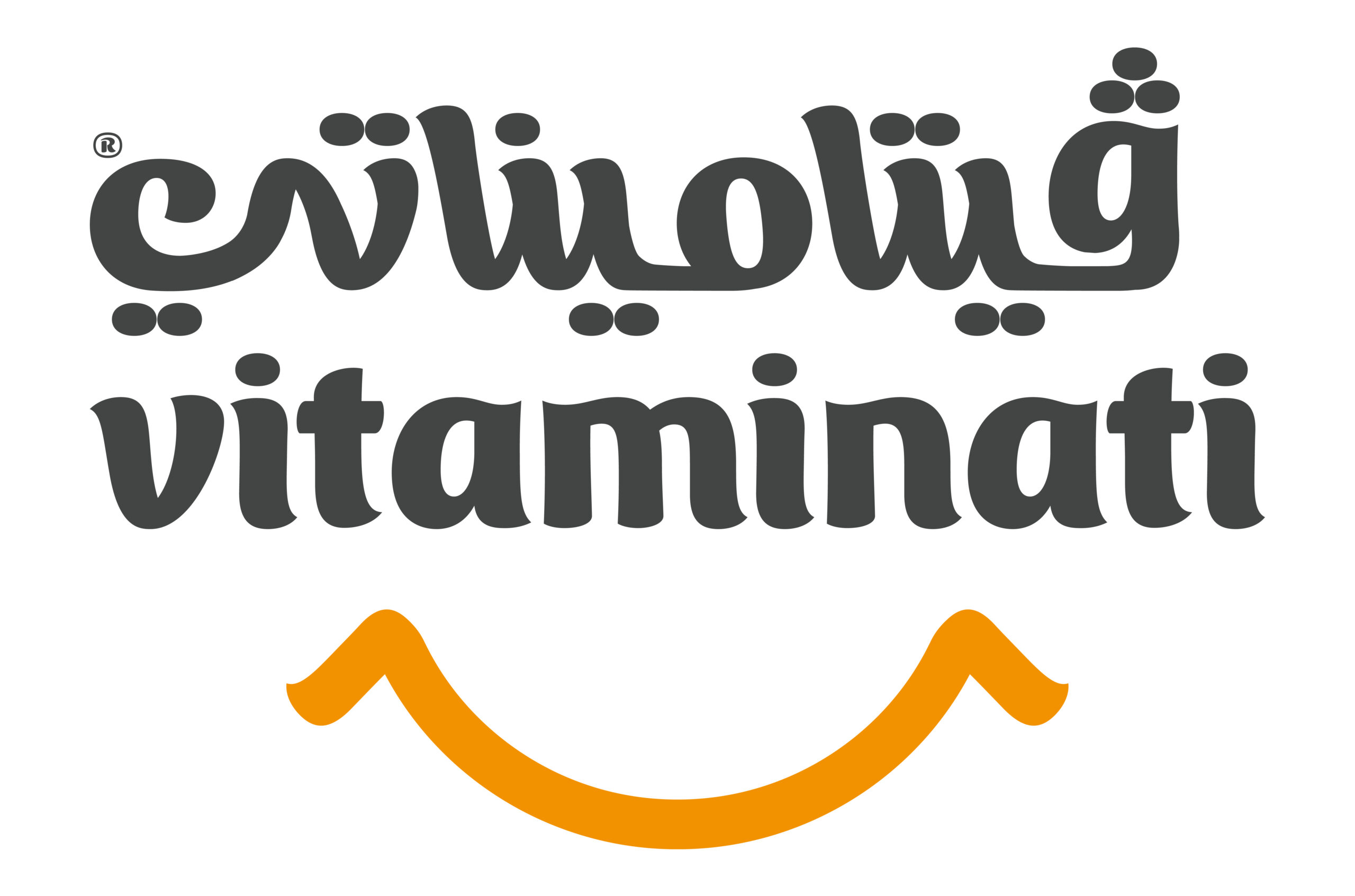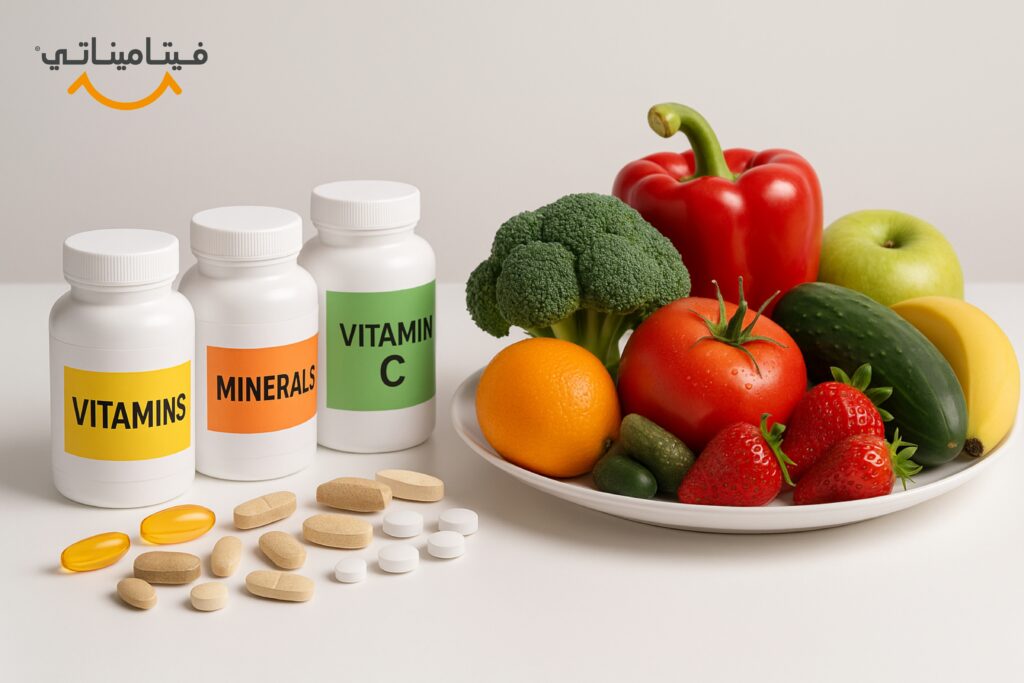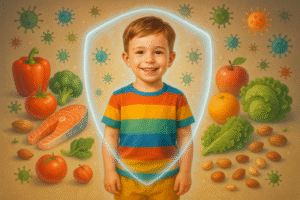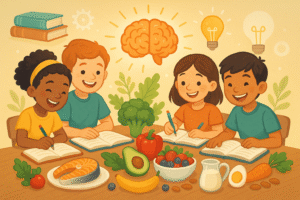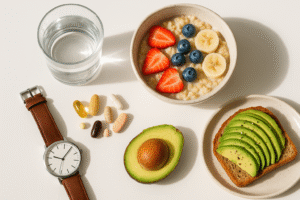Table of Contents
ToggleDo You Really Need Supplements If You Eat Healthy?
Many people ask, “Do you need supplements if you eat healthy?”
It’s a question that’s sparked debate among nutrition experts and everyday health enthusiasts alike.
Some people believe that vitamins and supplements are essential daily, while others insist that natural foods are enough. So what’s the truth?
According to the World Health Organization (WHO), natural foods are the best and safest way to get vitamins and minerals. Supplements should be used only when the body cannot meet its needs through diet alone.
After all, food isn’t just calories — it’s a complex system of nutrients, antioxidants, and fibers that work together to keep the body functioning optimally.
What Are Vitamins and Why Does the Body Need Them?
Vitamins are organic compounds that the body needs in small amounts for essential functions like energy production, immunity, and tissue repair.
Without them, even a balanced diet can’t sustain good health. Each vitamin plays a specific role:
-
Vitamin A supports vision and cell growth.
-
Vitamin C boosts immunity and helps form collagen.
-
Vitamin D aids calcium absorption for strong bones.
-
Vitamin B complex supports metabolism and brain health.
Fruits and Vegetables: The Natural Vitamin Powerhouses.
If you eat healthy, you already know that fruits and vegetables are your first line of defense against vitamin deficiencies.
They’re the richest natural sources of essential nutrients:
-
Vitamin C in oranges, strawberries, and bell peppers.
-
Vitamin A in carrots and sweet potatoes.
-
Vitamin K in spinach, kale, and broccoli.
-
Folic acid in leafy greens, crucial for pregnant women and brain health.
The WHO recommends five servings of colorful fruits and vegetables a day — enough to cover most of your body’s vitamin requirements.
Whole Grains and Nuts: Natural Energy and Brain Boosters.
Whole grains such as oats, quinoa, and brown rice provide B vitamins that help produce energy and improve concentration.
Nuts like almonds, walnuts, and hazelnuts offer Vitamin E, a potent antioxidant that protects your cells from damage.
Eating a handful of nuts daily supports brain function, skin health, and overall vitality.
Animal-Based Sources: Essential Vitamins You Can’t Get From Plants.
Even if you eat healthy, some nutrients are found mostly in animal-based foods:
-
Vitamin B12 — crucial for nerve and blood cell health.
-
Vitamin D — found in fatty fish like salmon and mackerel.
-
Iron and zinc — strengthen immunity and metabolism.
According to the Office of Dietary Supplements (ODS), vegans and vegetarians may need supplements to replace these nutrients.
When Healthy Eating Is Enough?
If your diet is balanced and diverse, you probably don’t need supplements.
Whole foods deliver not only vitamins but also fiber, antioxidants, and enzymes that work in synergy — something supplements can’t replicate.
How to Ensure a Balanced Vitamin Intake?
To make sure your diet covers all vitamins:
-
Eat a rainbow of foods — green for Vitamin K, orange for Vitamin A, red for antioxidants.
-
Include protein — fish, eggs, and legumes for B vitamins and iron.
-
Add healthy fats — olive oil, avocado, or nuts to absorb fat-soluble vitamins (A, D, E, K).
When You Might Still Need Supplements?
Even if you eat healthy, there are times when supplements are beneficial or necessary:
1. Pregnancy and Breastfeeding:
The WHO recommends folic acid and iron supplements during pregnancy to prevent anemia and support fetal growth.
2. Older Adults:
As we age, the body’s ability to absorb B12 and Vitamin D declines.
Supplements can help maintain energy, mood, and bone density.
3. Vegan or Restrictive Diets:
Plant-based eaters often lack Vitamin B12, D, and iron, which are primarily found in animal products.
4. Chronic Conditions:
Health issues like diabetes or gastrointestinal disorders can reduce nutrient absorption. In these cases, supplements are medically necessary, not optional.
What are signs of vitamin deficiency?
Can Supplements Replace Food?
So, do you need supplements if you eat healthy?
The answer is: not usually.
Supplements can fill gaps in your diet but can’t replace real food.
Food provides fiber, enzymes, and phytochemicals that pills simply don’t contain.
The best strategy?
Rely on food first — and turn to supplements only when needed and under medical supervision.
Vitamins vs. Supplements: Understanding the Difference.
-
Vitamins are natural compounds found in foods.
-
Supplements are man-made products designed to fill nutrient gaps.
Both can support your health, but supplements should never be taken without medical advice. Overuse can cause imbalances — for instance, excess Vitamin A can be toxic.
Vitamins vs. Minerals: The Other Side of Nutrition.
While vitamins are organic, minerals (like iron, calcium, and zinc) are inorganic and equally vital.
Together, they maintain energy, bone strength, and immunity.
Best Practices: Taking Vitamins the Right Way.
For optimal absorption:
-
Take fat-soluble vitamins (A, D, E, K) with meals containing healthy fats.
-
Don’t mix high doses of supplements without guidance.
-
Prioritize whole foods — that’s where real nutrition begins.
When in Doubt, Ask a Professional.
Even if you eat healthy, your doctor or dietitian can help assess if you need supplements.
They can identify deficiencies through blood tests and recommend safe, evidence-based solutions.
Conclusion: Food First, Supplements When Needed.
So, do you need supplements if you eat healthy?
In most cases — no.
A balanced, colorful diet supplies nearly everything your body needs.
Supplements have their place, but they’re supportive tools, not replacements.
The key is balance — food first, supplements when necessary, and always under medical advice.
Because, ultimately, wellness starts in the kitchen, not the pharmacy.
References:
-
World Health Organization (WHO) – Micronutrients
-
Office of Dietary Supplements (ODS) – NIH
FAQs: Do You Need Supplements If You Eat Healthy?
1. Can a healthy diet provide all the vitamins I need?
Yes, a varied diet rich in fruits, vegetables, grains, and proteins can cover most vitamin needs.
2. When should I consider taking supplements?
If you’re pregnant, older, vegan, or have a condition that affects nutrient absorption.
3. Are supplements better than food?
No. Supplements can help, but real food offers a broader range of nutrients and fiber.
4. Can I overdose on vitamins?
Yes — too much Vitamin A, D, or E can cause health issues. Always follow medical advice.
5. What are signs I might need supplements?
Fatigue, brittle nails, weak immunity, or pale skin can indicate a deficiency.
6. How can I boost vitamin absorption naturally?
Eat whole foods with healthy fats and stay hydrated for better nutrient uptake.
7. Do vitamins strengthen immunity?
Yes — especially vitamins C, D, and E, which enhance immune defense and reduce inflammation.
8. What’s the difference between natural vitamins and supplements?
Natural vitamins come from food, while supplements are manufactured to compensate for deficiencies.
Final Summary:
If you’re asking, “Do you need supplements if you eat healthy?” — the answer is mostly no.
Natural food is your best source of vitamins; supplements are only needed when diet or health conditions fall short.
PharmD with expertise in pharmaceuticals and a passion for making medical knowledge clear, accurate and accessible to all
